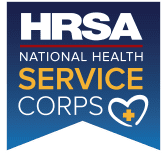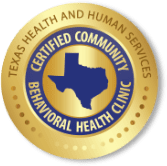You may be dealing with
Eating Disorder
Children today are growing up in what experts say is a more stressful environment than ever before. To cope with stress, anxiety and low self-esteem, some adolescents may become obsessed with what they eat and how much they weigh. Eating disorders such as anorexia nervosa or bulimia nervosa are complex medical illnesses that have serious physical, mental and psychosocial consequences as well as high mortality rates. Characterized by unhealthy approaches to eating, weight and exercise, eating disorders are more than just a refusal to eat healthy – they are also mental health disorders. People who are dealing with an eating disorder may have underlying issues with self-image, anxiety and even depression.
One of the most common signs of an eating disorder is skipping meals or restricting food intake. There may also be binging or purging behaviors. Someone with anorexia may be restricting food intake to the point of malnutrition, dehydration and severe weight loss; while someone with bulimia may eat large portions of food to the point of feeling sick. As a result, they force themselves to throw up or take laxatives to rid their body of food. This behavior increases the risk for heart and esophagus issues.
Causes and Risk Factors
There are several factors that might play a role in someone having an eating disorder, including:
- family history of mental illness or weight issues
- social attitudes
- sports and activities that focus on body shape and size
- genetics
Don’t ignore the warning signs in kids. Certain risks of eating disorders can significantly compromise a child’s health, but recovery is possible with treatment.
At CHCS, we understand how hard it is to break the cycle of an eating disorder. If you or someone you love has an eating disorder like anorexia or bulimia, consider seeing your pediatrician or a mental health provider who specializes in the treatment of such disorders. The sooner you seek help, the better the prognosis.
Mental illness is not your fault. There is no single cause for eating disorders; instead, they can be caused by a mixture of biological, psychological and environmental factors. Research also suggests that children are more likely to develop mental health disorders when they experience trauma or stress, are maltreated, are bullied or rejected by other children, or when their own parents have mental illness.
Mental health and wellness is essential for a child to live an independent, productive life full of positive experiences. Through mental health treatment and outpatient programs, The Center for Health Care Services helps children get on-track with peers, achieve academic success and live a positive, meaningful life as a well-functioning adult. If you or a loved one is experiencing a mental health condition like an eating disorder, YOU ARE NOT ALONE!
Outpatient Mental Health Services for Children and Adolescents
Being mentally healthy in childhood means reaching developmental and emotional milestones, learning healthy social skills, and how to cope when problems arise. When there is a concern that a child might not be meeting these milestones, The Center offers an array of services that can help.
Our goal is to strengthen and support families by providing services for an array of issues, including:
- Sadness or depression
- Fear or anxiety
- Persistent nightmares
- Low self-esteem
- Social isolation
- Harming self or others
- Behavioral problems
- Academic problems
- Running away and truancy
- School bullying
- Parenting support
- Child abuse/assault
- Divorce
- Grief/loss
- History of trauma
Children’s mental health treatment is for Bexar County youth ages 3 – 17 with a DSM-V Diagnosis, and includes the following services:
- assessment
- skills training
- counseling
- case management
- medication training and support
- psychiatric evaluation and medication monitoring
- training
- family partner support
How to Enroll in Children's Behavioral Health Services
To enroll a child in services, start by calling (210) 261-CHCS (2427) to begin the registration process. The enrollment screening process is done Monday through Friday from 8 a.m. to 3 p.m. at the Children’s Behavioral Health Clinic at Bandera: 6812 Bandera Road, Suite 102, San Antonio, Texas 78238.
In the event of a mental health crisis including suicidal or homicidal thoughts, please call the 24-Hour Crisis & Substance Use Helpline at 800-316-9241 or 210-223-SAFE (7233). Please call 911 if harm to self or harm to others is imminent.
The Center helps children and adolescents find hope, determine their path to wellness, and discover their way to an independent, productive life.
For more information, or to enroll in services, please call:
Children: (210) 261-CHCS (2427)
Good Health and Wellbeing: Children 101
Mental health and wellness is essential for a child to live an independent, productive life full of positive experiences. Because a child’s development begins with the love and encouragement they receive from parents and caregivers, it’s important to:
- Establish healthy habits: nutritious food, adequate sleep, and exercise
- Provide a safe and secure home
- Give children unconditional love
- Nurture a child’s confidence and self-esteem
- Make time for play
- Provide fair and consistent guidance and discipline
- Teach your children healthy ways to manage stress and bounce back from adversity
- Help your child maintain emotional balance by teaching them resiliency
- Take care of your own mental health!



